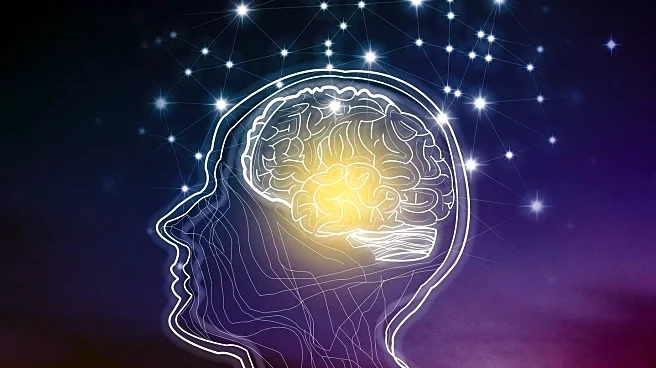What is the story about?
What's Happening?
A man suffering from severe, treatment-resistant depression for over 30 years has experienced remission following a novel brain stimulation method developed by researchers at the University of Minnesota. The treatment involves implanting electrodes and sending weak electrical signals to specific brain areas associated with depression. This personalized approach, tailored to the patient's unique brain structure, has led to significant improvements in his mental health, including experiencing joy for the first time in decades. The study, led by psychiatrist Ziad Nahas, highlights the potential of targeting multiple brain networks to alleviate symptoms of depression. The findings are detailed in a preprint on PsyArXiv, although not yet peer-reviewed.
Why It's Important?
This development represents a significant advancement in the treatment of depression, particularly for individuals who do not respond to conventional therapies. Treatment-resistant depression affects a substantial portion of those diagnosed with major depressive disorder, often leading to severe consequences such as repeated hospitalizations and suicide attempts. The success of this personalized brain stimulation method could pave the way for more effective treatments, offering hope to patients who have exhausted other options. By demonstrating the potential of individualized brain network targeting, this research may influence future psychiatric practices and treatment protocols.
What's Next?
The research team plans to expand their study by implanting additional participants and conducting a double-blind clinical trial to further validate their findings. This could lead to broader adoption of the technique in clinical settings, potentially transforming the approach to treating depression. As the method gains recognition, it may attract interest from medical professionals and institutions seeking innovative solutions for mental health disorders. Continued research and trials will be crucial in establishing the efficacy and safety of this treatment on a larger scale.
Beyond the Headlines
The implications of this research extend beyond immediate clinical applications. It challenges the traditional one-size-fits-all approach to brain stimulation therapies, emphasizing the importance of personalized medicine in psychiatry. This could inspire further exploration into tailored treatments for other mental health conditions, potentially leading to breakthroughs in areas such as anxiety and PTSD. Additionally, the study raises ethical considerations regarding the use of invasive procedures in psychiatric treatment, necessitating careful evaluation of risks and benefits.
















